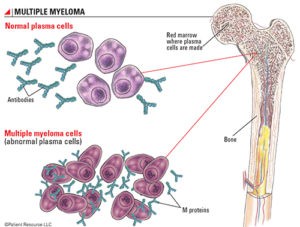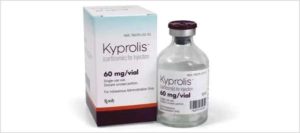“As the elderly man with an incurable cancer (MM) lay dying, he told his son he had only one regret. Rather than enjoying his last weeks of life with the people and places he loved, he had squandered them on drug treatments that consumed his days and made him miserable.”
Multiple Myeloma (MM) is an incurable cancer. Conventional myeloma oncology does not know how to cure MM. Aggressive, toxic therapies provide an five year average survival of 5-7 years.

Everytime the article linked and excerpted below says “incurable cancer” image you are reading “multiple myeloma” instead.
While conventional oncology has gotten pretty good (90% plus) at putting newly diagnosed MM patients into their first remission, conventional oncology can’t keep MM patients in remission nor can they continue remission. All patients eventually reach multi-drug resistence (MDR).

To complicate the decision-making of MM patients and caregivers further, all those chemotherapy regimens that have been researched and approved by the FDA in the past dozen or so years cost tens of thousands of dollars. The end-stage myeloma patient may saddle his/her loved ones with thousands of dollars of EOB’s only to extend suffering for extra weeks or months.
Yes, there are evidence-based complementary, integrative and even alternative therapies for MM patients. However, determining the efficacy of these treatments is difficult at best.
I have to admit that it was an alternative MM therapy that took me from end-stage MM to complete remission where I have remained since April of 1999. Please understand that undergoing this therapy is extremely complicated.
To learn more about a non-conventional therapy plan for your multiple myeloma scroll down the page, post a question or comment and I will reply to you ASAP.
David Emerson
- MM Survivor
- MM Cancer Coach
- Director PeopleBeatingCancer
Recommended Reading:
Too often, people with incurable cancers pursue therapy beyond any hope of benefit — except, perhaps, to the pockets of Big Pharma.
“As the elderly man with an incurable cancer lay dying, he told his son he had only one regret. Rather than enjoying his last weeks of life with the people and places he loved, he had squandered them on drug treatments that consumed his days and made him miserable.
Perhaps others can benefit from this man’s end-of-life insight. Too often, people with incurable cancers pursue therapy beyond any hope of benefit except perhaps to the pockets of Big Pharma.
There are many reasons this happens. Some patients won’t acknowledge that their death is imminent, and some doctors won’t admit to them that nothing more can be done to contain the disease. Others with unstoppable cancers think that if they hang in there long enough, a new treatment may come along to reverse their fate.
And some patients hope to ward off the Grim Reaper until after a special event, like a child’s graduation or wedding or birth of a grandchild. Still others succumb to the urging of family members to try everything modern medicine can offer. Even I fell into that trap…
I also now realize that how people spend their remaining days should be a personal decision based on sound medical advice and free from other people’s influence. This should prevail for any ailment for which there is no longer effective treatment, or when the harmful effects of treatment far outweigh any imagined benefits, or when patients decide that their disease or its treatments make their lives not worth living…
Although slightly more than two-thirds of cancer patients treated in the United States are cured, this is mostly the result of early detection and combinations of surgery, radiation and chemotherapy treatments developed decades ago…
Still, buying time can be meaningful to many patients, who may use it to get their affairs in order, reconcile with estranged family or friends, and say meaningful goodbyes…
But experts who focus on quality of life maintain that it should be up to patients to decide if continued treatment is worth the costs. And not just personal costs but also dollar costs, given that some new therapies cost hundreds of thousands of dollars a year. Furthermore, these experts say, the decision to continue treatment should be based on honest, factual advice, not wishful thinking or pressure from family members…
I wonder, too, how often oncologists suggest an experimental treatment more for the benefit of science than for the patients they’re treating. Based on my family’s experience, honesty about the goal is the best policy…
Even when people with advanced cancer are relatively healthy, attempting yet another round of treatment often worsens quality of life in their final weeks, according to a 2015 study of 312 patientswith metastatic solid tumors and a prognosis of six months or less to live.
About half the patients in this study opted for end-stage chemotherapy. For those who were sickest at the start, quality of life in their last week was no worse than if they had skipped further treatment. But among the 122 patients in the best shape initially, quality of life was significantly worse for the 56 percent who opted for further chemotherapy. Holly G. Prigerson of Weill Cornell Medical College, who directed the study, expected the healthier patients to do better and was surprised by the results.
As Dr. Charles D. Blanke wrote about the study, published in JAMA Oncology, “Chemotherapy is supposed to either help people live better or help them live longer, and this study showed that chemotherapy did neither.”
Sometimes, however, chemotherapy or radiation is offered to patients near the end of life to alleviate debilitating symptoms. But the goal of such palliative therapy should be made clear to patients lest it give them false hopes for a cure.”





